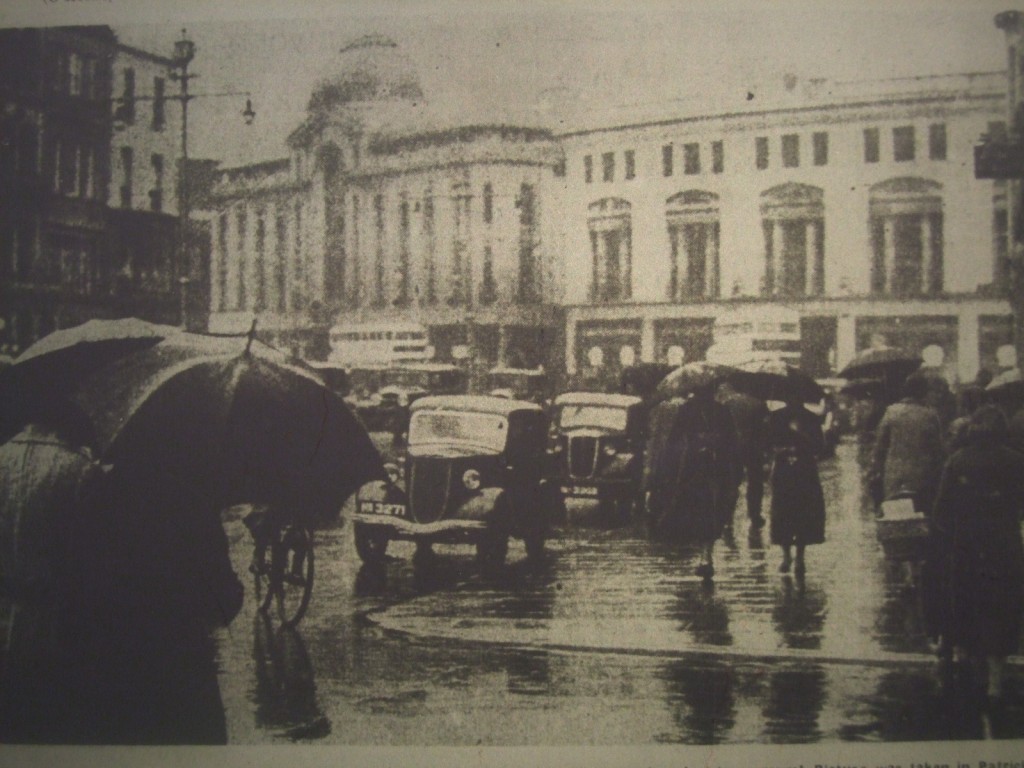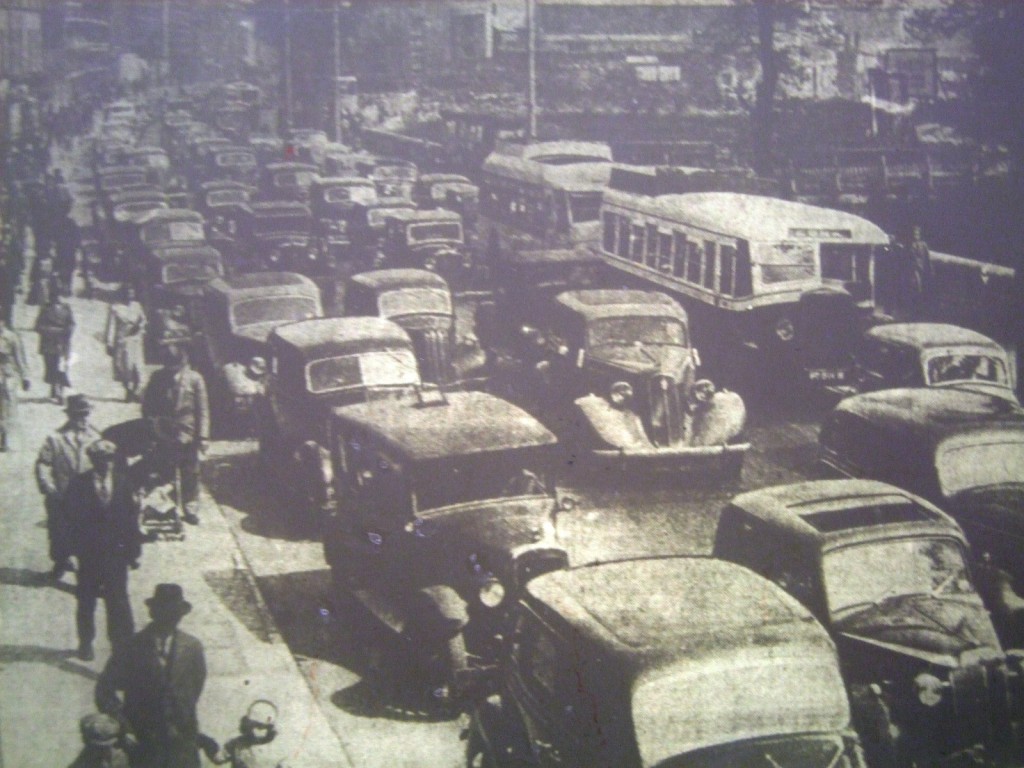
Kieran’s Our City, Our Town,
Cork Independent, 2 June 2011
In the Footsteps of St. Finbarre (Part 258)
Constitutions and Agreements, April 1938
On Monday 25 April 1938, the press media reported that approximately seventy thousand spectators saw lap records beaten several times during the International Light Car and Cork Grand Prix at the Carrigrohane Circuit two days previously on the Saturday.
As Cork people read about “the wonderful driving displays” and “speed thrills”, further events with an enormous legacy for the nature of Irish identity were also unfolding on the same day. That weekend the representatives of Fianna Fáil and Fine Gael, on behalf of their respective parties, agreed to invite Roscommon born Senator Dr. Douglas Hyde to accept the nomination for the presidency. The provision for a president of Ireland was made in the July 1937 Irish Constitution. The Constitution of Ireland replaced the Constitution of the Irish Free State which had been in effect since the southern state became independent from the United Kingdom in 1933. It established a government under a parliamentary system. It provided for a directly elected, ceremonial President of Ireland (Article 12), a head of government called the “Taoiseach” (Article 28) and a national parliament called the “Oireachtas” (Article 15).
On Monday 25 April, the Cork Examiner also carried the important story that the text of the Anglo-Irish agreement was to be signed in London that afternoon. Talks had begun with the visit of an Irish delegation three months previously. Political concerns, defence, trade relations, trade duties and financial position were all topics for discussion. Taoiseach Eamonn DeValera and three Irish ministers, Sean MacEntee, Sean Lemass and Dr. James Ryan, together with John W. Dulanty, the Irish High Commissioner, who played a prominent part in the discussions, were to attend an informal luncheon with Neville Chamberlain, the British Prime Minister on Tuesday 26 April. The Prime Minister and Mrs. Chamberlain had only moved into their new residence at no.10 Downing Street a few days previously. With DeValera the secretaries of the four Departments were also present, J.P. Walshe of External Affairs, Sean Lydon of Industry and Commerce, J.J. McElligott of Finance and Dan Twomey of Agriculture.
The Cork Examiner reported on the Monday that the Irish delegation crossed from Dublin on Saturday night and attended mass on the Sunday (24th) in Liverpool Cathedral before continuing to London. At Euston they were cheered by a crowd who waved two tricolours. Mr. Malcolm MacDonald (Secretary of Dominions and Mr. Dulanty Irish Commissioner in London, cordially greeted An Taoiseach Eamonn DeValera as he stepped from the train. The usual police precautions were taken plus close to DeValera was his so called “shadow”, Inspector Patrick J. Phelan, native of Dingle, who had become known at Scotland Yard as Mr. DeValera’s permanent bodyguard when the Taoiseach was in England.
On Tuesday 26 April 1938, the Cork Examiner discussed the provisions of the new Anglo-Irish Agreement. The economic war between the Irish Free State and Britain was ended with the signing. The agreement provided for the transfer to the Irish Government of the Admiralty, property and rights at Berehaven and the harbour defences at Berehaven, Cobh and Lough Swilly not later than 31 December 1938.
The special duties imposed by each side in the economic war were to be removed and a detailed trade agreement was planned to govern trade between the two countries for the ensuing three years. Irish goods were to enjoy entry into the British market free of duty, except for certain classes of goods, which were subject to revenue duties, i.e. beer, spirits, tobacco, sugar and silks. Eleven classes of Irish agricultural products were to receive preference on the British market. If imports increased to such an extent as to endanger the stability of the United Kingdom “market quantitative regulation”, a duty could be applied. The Irish government was to make immediate reductions in duties on 25 classes of British manufactured goods, but quantitative regulation of such goods could be made if imports increased to such an extent as to endanger Irish industries. Entry free of duty was provided for a large range of United Kingdom goods. Foreign goods that were admitted under licence were to be subject to a duty of not less than ten per cent. Irish protective duties and import restrictions were to be reviewed by the Prices Commission so as to give British producers opportunity of reasonable competition while affording Irish industries adequate protection.
The papers on the 25 April 1938 also wrote in detail about General Francisco Franco and the Spanish Civil War. For the week beginning Monday 25 April 1938, the press outlined his control of two –thirds of Spain’s Rice Fields and some of the country’s best orange grove. Francisco Franco and the military had participated in a coup d’état against the Popular Front Spanish government. The coup failed and devolved into the Spanish Civil War during which Franco emerged as the leader of the Nationalists against the Popular Front government. After winning the civil war with military aid from Italy and Nazi Germany—while the communist Soviet Union and various Internationalists aided certain forces of the left—he dissolved the Spanish Parliament. The Spanish Civil War began in July 1936 and officially ended with Franco’s victory in April 1939, leaving 190,000 to 500,000 dead.
To be continued…
Captions:
593a. St. Patrick’s Street, Cork, Saturday 23 April 1938 (picture: Irish Press)
593b. Western Road , Cork, traffic jams to see the Cork Grand Prix, Saturday 23 April 1938 (picture: Irish Press)
